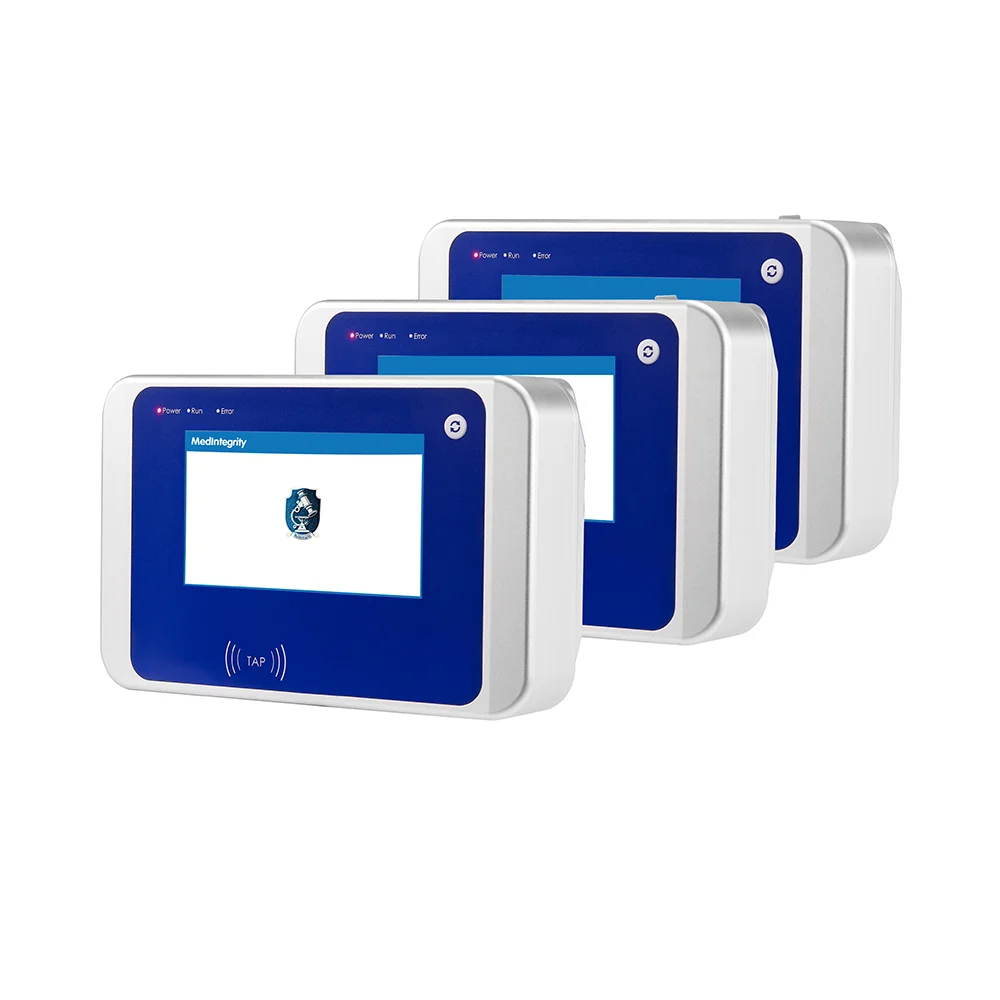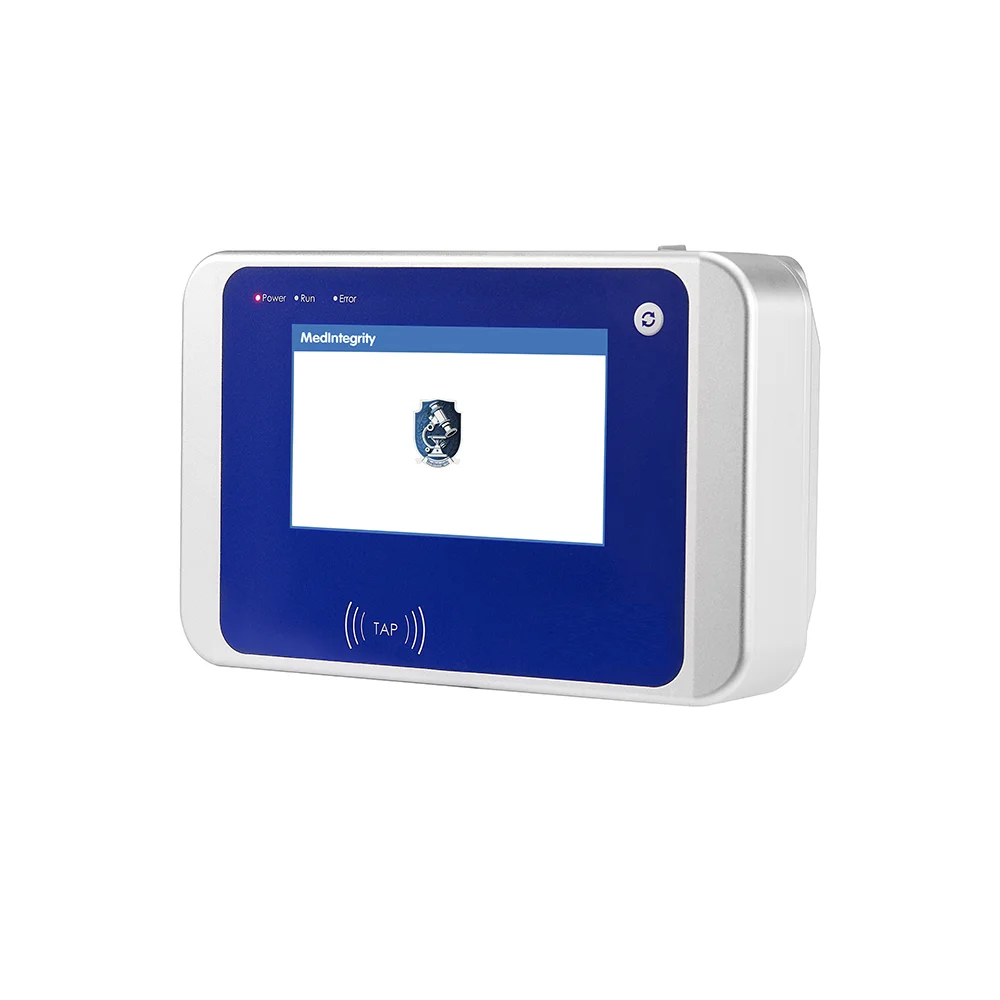Exploring the Importance of Glove Integrity Tester in Drug Manufacturing
Exploring the Importance of Glove Integrity Tester in Drug Manufacturing
In the tightly controlled world of making medicines, keeping products safe and pure is a top priority. A key tool in this effort is the glove integrity tester. This device checks for tiny holes in gloves used in clean spaces. At MedIntegrity, we know how vital these testers are for protecting drug production. This blog looks at why glove integrity testers matter, their main features, testing methods, benefits, and why we are a dependable partner for medicine companies worldwide.

The Role of Glove Integrity Testers in Ensuring Safety
Glove integrity testers are crucial for keeping clean conditions in medicine production. Gloves act as a shield between workers and products. They stop germs or dirt from getting in. Even a small tear in a glove can break this shield. This could lead to contamination, harming product quality and patient safety.
Why Glove Integrity Matters in Drug Manufacturing
In medicine production, a clean space is a must. Gloves are used in cleanrooms and isolators. Workers handle active drug ingredients, sterile tools, and final products with them. A damaged glove can let in germs, dust, or skin flakes. This could cause product recalls, fines, or harm to patients. Glove integrity testers check that gloves stay whole. They give confidence that the process meets strict safety rules.
The Impact of Compromised Gloves on Product Quality and Safety
A single hole in a glove can cause big problems. For example, germs can change a drug’s strength or add harmful bugs. This puts patients at risk. Also, dirt particles can mess with a drug’s stability, causing batch failures. Studies show that glove breaches cause many sterility issues in medicine production. Using trusty glove integrity testers helps stop these risks. They keep products safe and pure.
To protect your facility from such dangers, check out our solutions at MedIntegrity.
Key Features of Effective Glove Integrity Testers
Not every glove integrity tester is the same. The best ones use smart technology and are easy to use. They give correct results every time. At MedIntegrity, we make testers that fit the needs of medicine makers. Our tools ensure precision and follow industry rules.
Sensitivity and Accuracy in Detecting Breaches
A good glove integrity tester must find even the tiniest holes, like pinholes or small tears. These could harm cleanliness. Our WGT-1200 tester uses a precise pressure sensor. It spots defects fast and accurately. This high sensitivity ensures no hole goes unnoticed. It keeps both the product and worker safe.
Compliance with Industry Standards and Regulations
Following rules is a big part of medicine production. Glove integrity testers must meet standards like FDA 21 CFR Part 11, GMP, and ISO 14644-7. Our WGT-1000 tester has features like four-level access control and electronic signatures. These help meet data and tracking rules. They make audits easier and keep your facility compliant.
Now that we’ve covered key features, let’s look at how glove integrity testing is done.
Methods for Conducting Glove Integrity Testing
There are different ways to test glove integrity. Each has its own strengths. Knowing these methods helps medicine makers pick the best one for their needs.
Overview of Common Testing Techniques
Two common methods are pressure decay testing and water leak testing. Each works well in different settings. The choice depends on the glove type and production space.

Pressure Decay Testing Method
Pressure decay testing, used in our WGT-1000, fills the glove with air. It then checks if the pressure drops. A drop means there’s a hole. This method is very sensitive and doesn’t damage the glove. It’s quick and works well in cleanrooms or isolators. It’s great for finding small defects.
Water Leak Testing Method
Water leak testing dips the glove in water. Workers look for bubbles, which show a hole. This method is good for bigger defects. However, it’s less precise than pressure decay testing. It also takes more time. It’s often used when high accuracy isn’t as critical.
Advantages and Limitations of Different Methods
| Method | Advantages | Limitations |
| Pressure Decay | Very sensitive, doesn’t harm gloves, fast, good for cleanrooms | Needs special tools like our WGT-1200 |
| Water Leak | Simple to set up, costs less for basic tests | Less accurate, takes longer, not great for tiny holes |
Picking the right method depends on your facility’s needs, budget, and rules. For help choosing, contact us to talk about your specific situation.
Next, let’s explore the advantages of using glove integrity testers in your facility.
Benefits of Implementing Glove Integrity Testers in Drug Manufacturing
Adding glove integrity testers to your process brings many benefits. They improve safety and make operations smoother.
Enhancing Contamination Control Measures
Glove integrity testers are a key part of stopping contamination. They ensure gloves have no holes. This prevents germs or dirt from entering the production area. This is very important in sterile processes. Even a small contamination can lead to big losses. Our testers help keep your space clean. They reduce the chance of costly batch failures.
Supporting Regulatory Compliance Efforts
Agencies like the FDA and EMA demand strong contamination controls. Glove integrity testing shows you follow these rules. It helps you pass audits easily. Our testers are built to meet global standards. They make compliance simple and stress-free.
Having discussed the benefits, let’s share how we at MedIntegrity support your testing needs.
MedIntegrity: A Trusted Supplier for Glove Integrity Testers
At MedIntegrity, we are proud to lead in providing precise testing tools for the medicine industry. Our knowledge and new solutions make us a reliable partner for companies worldwide.
Overview of MedIntegrity’s Expertise and Offerings
We focus on advanced testing equipment. Our top products include the WGT-1200 and WGT-1000 glove integrity testers. These use smart technology, like wireless connections and built-in air pumps. They make testing accurate and easy. Our commitment to quality has won us trust from big names like BeiGene USA and Sunny Pharmaceutical.
Why Choose MedIntegrity for Your Glove Testing Needs
- Proven Knowledge: We have years of experience. We understand medicine production challenges.
- Smart Tools: Our testers have wireless features and meet compliance needs.
- Global Trust: Thousands of medicine companies worldwide rely on us.
- Full Support: We help with setup, training, and ongoing service.
For more details on our solutions, visit our homepage or contact us.
As we close, let’s highlight the vital role of glove integrity testing in today’s medicine production.
Conclusion
Glove integrity testers are more than just tools. They protect safety, quality, and compliance in medicine production. By finding holes that could harm cleanliness, these devices keep patients safe. They also reduce financial risks and ensure rule-following. At MedIntegrity, we provide top-notch solutions. We help medicine makers achieve excellence. Investing in dependable glove integrity testing is a step toward safe and effective medicines.
FAQs on Glove Integrity Testers in Drug Manufacturing
Q1 What is a glove integrity tester, and why is it important?
A1 A glove integrity tester is a device that checks for holes in gloves used in clean medicine production areas. It’s important because even a tiny hole can let in germs or dirt. This could harm product safety and quality. Regular testing ensures gloves work as a strong barrier. It protects both the product and the worker.
Q2 How often should glove integrity testing be conducted in drug manufacturing facilities?
A2 How often you test depends on your facility’s rules and industry standards. Usually, gloves in cleanrooms or isolators are tested before and after each production shift. High-risk processes may need more tests. Reach out to our team at MedIntegrity to create a testing plan that fits your needs.
Q3 Can glove integrity testers detect all types of breaches or defects?
A3 Advanced testers, like our WGT-1200, are very sensitive. They can find tiny holes, such as pinholes. However, no tester can catch every single defect. Factors like glove material or testing conditions can affect results. Still, our testers meet strict industry standards. They provide high reliability and accuracy for spotting holes that could harm cleanliness.







